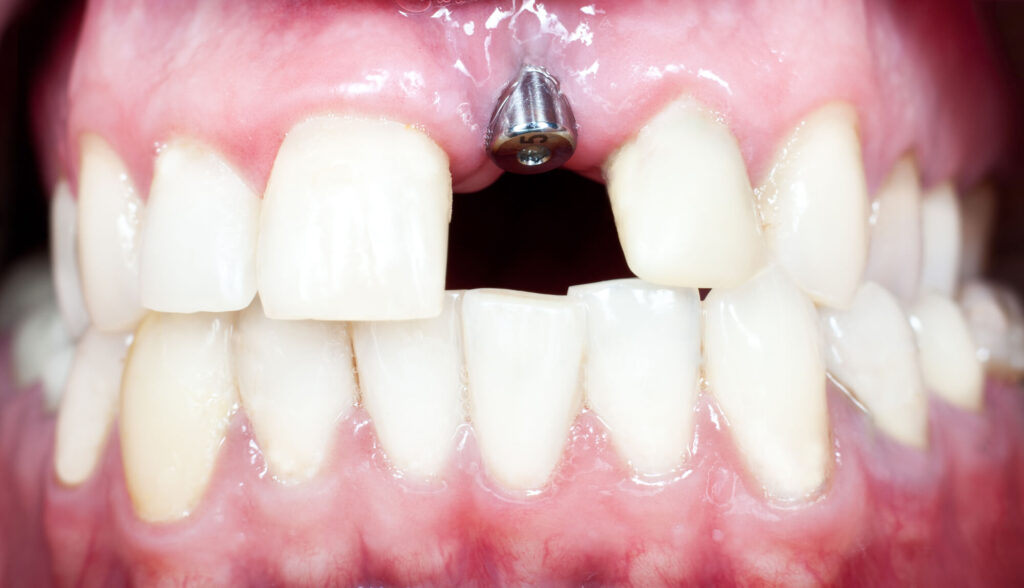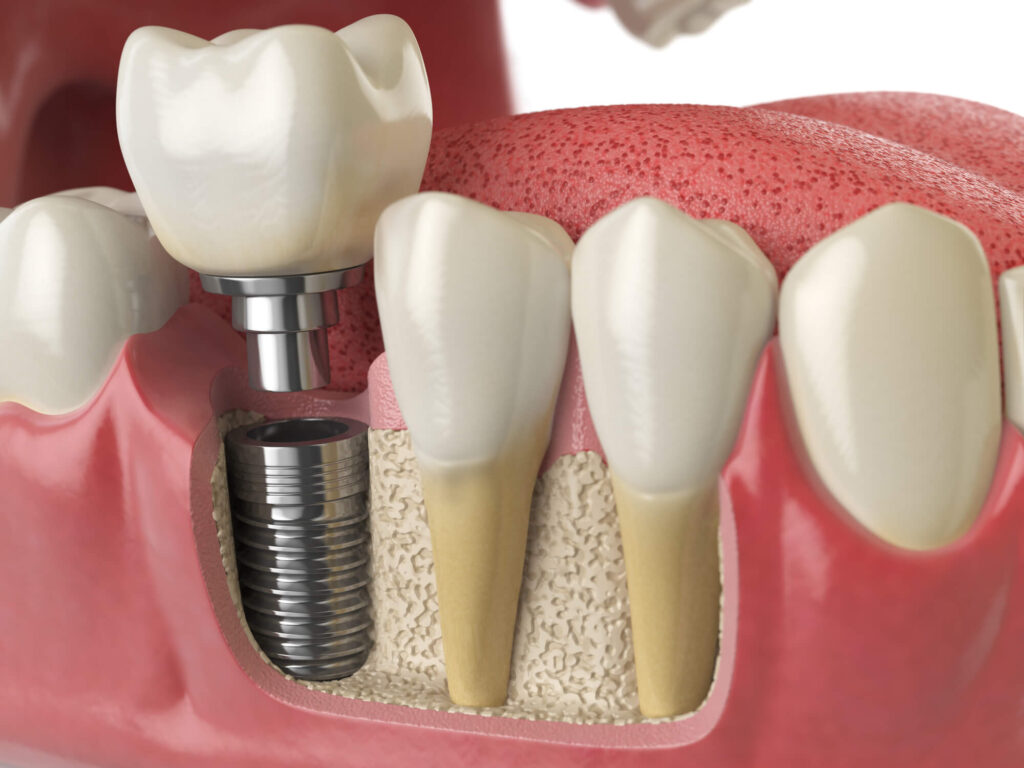If you’re considering options for replacing missing teeth, the thought of dental implants in Miami, FL, has probably crossed your mind. After all, dental implants can offer a long-lasting solution that can enhance your quality of life. However, before you give them serious thought, there are things you should consider. Read on to learn more about what’s involved in this procedure and whether they’re the right option for you.

What to Know Before Opting for Dental Implants
-
Implants May Not Be Right for Everyone
A dental implant in Miami, FL, can be a great option for many people who have missing teeth or need tooth replacements. If you have good oral health and sufficient bone density in your jaw, you may be a candidate for dental implants.
However, in some cases, additional procedures are needed to improve oral health or restore bone density before implant surgery. Moreover, certain factors can make you ineligible for dental implants such as the following:
Severe Gum Disease
If you have advanced gum disease, also known as periodontitis, it can affect the bone that supports your teeth and may cause implants to fail. This must be treated before considering dental implants.
Insufficient Jawbone Density
To support an implant, you need to have enough bone density in your jaw. If you have experienced bone loss due to periodontitis or other factors, you may require a bone graft before getting an implant.
Certain Medical Conditions
Certain medical conditions, such as uncontrolled diabetes, may interfere with the healing process after implant surgery. Be sure to discuss any medical conditions you have with your dentist before getting implants.
Pregnancy
Pregnant women should wait until after they give birth to get implants. Hormonal changes during pregnancy can affect your gums and may cause complications with implant surgery.
Certain Medications
Medications such as bisphosphonates, can affect the healing process after implant surgery. If you are taking any medications, be sure to discuss them with your dentist to determine if they may affect your ability to get dental implants in Miami, FL.
-
The Process Could Take Several Months
The dental implant process can take several months to complete, including the healing period between each stage. The length of time it takes will depend on your individual situation, but your dentist can give you a better idea of what to expect.
Initial Consultation and Planning
During this stage, your dentist will take x-rays, photographs, and impressions of your teeth and jaw to create a treatment plan that is tailored to your specific needs.
Implant Placement Surgery
This is typically done under local anesthesia and involves the placement of a small titanium post into the jawbone. This post will serve as the foundation for the replacement tooth.
Healing Period
During this time, the bone in your jaw will grow and fuse with the implant, a process known as osseointegration. This is a critical stage of the process, as it ensures that the implant is securely anchored in place.
Abutment Placement
Once the implant has fully fused with the jawbone, a small connector post called an abutment will be attached to the implant. This post will serve as support for the replacement tooth.
Crown Placement
Finally, the replacement tooth (crown) will be attached to the abutment. This is typically done using a special dental adhesive, and the result is a natural-looking tooth that is indistinguishable from your natural teeth.

-
Implants Require Good Oral Hygiene
Dental implants are an investment in your oral health and overall well-being. To ensure their longevity, it’s important to practice good oral hygiene and maintain regular dental check-ups. Here are some tips to help you care for your dental implants:
Brush and floss regularly
Just like your natural teeth, dental implants require regular brushing and flossing to remove plaque and prevent gum disease. Use a soft-bristled toothbrush and a non-abrasive toothpaste to brush twice a day, and floss at least once a day to clean between the implant and adjacent teeth.
Use an interdental brush or water flosser
If you have trouble flossing around your implant, consider using an interdental brush or water flosser to clean the hard-to-reach areas.
Avoid hard or sticky foods
Chewing on hard or sticky foods can damage your implant and the surrounding teeth. Stick to a soft, nutritious diet that supports your oral health.
Quit smoking
Smoking can interfere with the healing process after your surgery for dental implants in Miami, FL, and increase your risk of gum disease and bone loss. If you smoke, talk to your dentist about resources to help you quit.
Attend regular dental check-ups
Regular dental check-ups allow your dentist to monitor your oral health and detect any issues early on. Your dentist will also clean your teeth and remove any plaque or tartar buildup that can compromise the success of your implants.
-
The Success Rate Is Really High
Dental implants are an effective solution for missing teeth with a success rate of over 95%. This is because dental implants are designed to mimic the structure and function of natural teeth. They are made of biocompatible materials such as titanium that fuse with the jawbone to provide a stable foundation for replacement teeth.
With proper care and maintenance, dental implants can last a lifetime, making them a cost-effective solution in the long run.
While the success rate of dental implants in Miami, FL, is high, there is a small chance of complications. Some of the possible complications include:
- Implant failure: In rare cases, the implant may not properly fuse with the jawbone, leading to implant failure. This may occur due to poor oral hygiene, infection, or other factors. In such cases, the implant may need to be removed and replaced.
- Infection: Like any surgical procedure, dental implant surgery carries a risk of infection. Signs of infection include pain, swelling, and fever. If you experience any of these symptoms, contact your dentist immediately.
- Peri-implantitis: This is a type of gum disease that affects the tissues around the implant, causing inflammation, infection, and bone loss. It can occur if proper oral hygiene is not maintained.
Your dentist will carefully monitor your progress during the implant process and address any issues that arise. However, it’s important to be aware of warning signs that may indicate a problem with your implants. These can include:
- Pain or discomfort in the implant area
- Swelling or inflammation around the implant
- Bleeding or discharge from the implant site
- Loose or wobbly implants
- Changes in the bite or alignment of your teeth
If you experience any pain or discomfort, don’t hesitate to contact your dentist right away. Early intervention can prevent complications and ensure the success of your dental implants.
-
Your Dentist’s Experience and Expertise Matter
The success of your dental implant procedure heavily relies on the experience and expertise of the dentist who performs it. A dentist with experience and training in implant surgery is more likely to be able to identify and address any potential complications that may arise during or after the procedure.
Here are some points to consider:
- Consider their level of training and education. Dentists who specialize in implant dentistry may have additional training or certifications in the field, which can give them a higher level of expertise.
- Find a dentist with a thorough understanding of implant surgery and many successful procedures under their belt.
- Ask about the dentist’s experience with implants, including how many they have performed and their success rate.
How to Choose the Right Dentist for Your Implant Surgery?
It’s important to take your time and do your research to find the right dentist for your implant surgery. Here are some tips to help you make the right choice:
- Check their qualifications and experience: Look for a dentist who is trained and experienced in implant surgery. They should be able to provide you with their credentials and demonstrate their experience through before-and-after photos and patient testimonials.
- Ask about the implant procedure: A good dentist should be able to explain the implant procedure to you in detail, including the risks and benefits, and answer any questions you may have.
- Consider their communication style: You want to work with a dentist who listens to your concerns and communicates clearly and effectively. This will help ensure that you are on the same page throughout the implant process.
- Look for a comfortable and welcoming environment: You’ll be spending a lot of time at the dental office throughout the dental implant process, so it’s important to choose a comfortable and welcoming environment where you feel at ease.
- Research their reputation: Look for online reviews and ask for referrals from friends and family members. A dentist with a good reputation and a track record of success is more likely to provide you with a positive experience.

Interested in Dental Implants in Miami, FL?
If you’re ready to restore your smile with dental implants, schedule a consultation with our team at Dental American Group today. We’re committed to providing high-quality care and personalized treatment plans to meet your unique needs!

